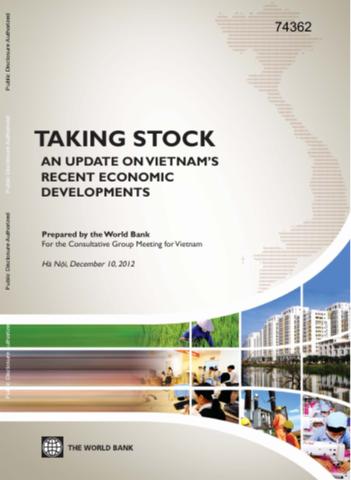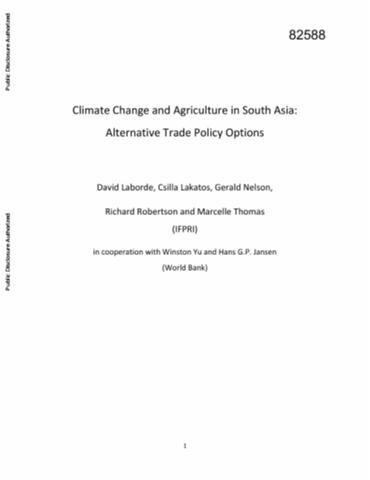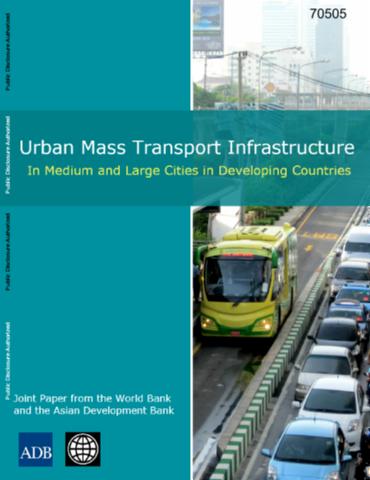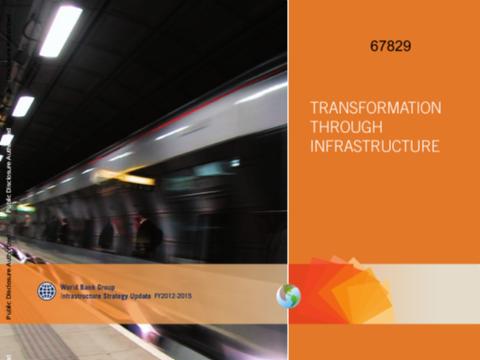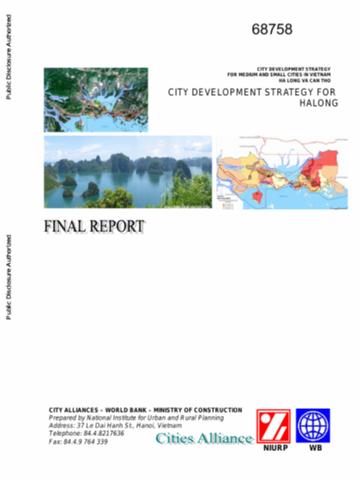The World Bank is a vital source of financial and technical assistance to developing countries around the world. We are not a bank in the ordinary sense but a unique partnership to reduce poverty and support development. The World Bank Group has two ambitious goals: End extreme poverty within a generation and boost shared prosperity.
- To end extreme poverty, the Bank's goal is to decrease the percentage of people living on less than $1.25 a day to no more than 3% by 2030.
- To promote shared prosperity, the goal is to promote income growth of the bottom 40% of the population in each country.
The World Bank Group comprises five institutions managed by their member countries.
The World Bank Group and Land: Working to protect the rights of existing land users and to help secure benefits for smallholder farmers
The World Bank (IBRD and IDA) interacts primarily with governments to increase agricultural productivity, strengthen land tenure policies and improve land governance. More than 90% of the World Bank’s agriculture portfolio focuses on the productivity and access to markets by small holder farmers. Ten percent of our projects focus on the governance of land tenure.
Similarly, investments by the International Finance Corporation (IFC), the World Bank Group’s private sector arm, including those in larger scale enterprises, overwhelmingly support smallholder farmers through improved access to finance, inputs and markets, and as direct suppliers. IFC invests in environmentally and socially sustainable private enterprises in all parts of the value chain (inputs such as irrigation and fertilizers, primary production, processing, transport and storage, traders, and risk management facilities including weather/crop insurance, warehouse financing, etc
For more information, visit the World Bank Group and land and food security (https://www.worldbank.org/en/topic/agriculture/brief/land-and-food-security1
Resources
Displaying 3021 - 3025 of 4907Taking Stock, December 2012
This paper includes three parts: external economic environment, part one includes: global environment, regional environment, and risks. Vietnam's recent economic development, part two includes: a relatively stable macroeconomic situation, growth at record low, booming exports despite a slowing economy, sharp turnaround in external accounts, inflation dynamics, monetary policy, fiscal policy, and near-term outlook. Structural reforms and medium-term outlook, part three includes: context, restructuring of state-owned enterprises, banking Sector development, and poverty reduction.
Climate Change and Agriculture in South Asia
There is increasing evidence suggesting that climate change will negatively impact agricultural production in South Asia. Decreased domestic production may make South Asian countries more dependent on imports. The extent to which South Asia will need to increase its imports as a result of climate change will presumably depend on the degree to which the latter will affect domestic output.
Urban Mass Transport Infrastructure in Medium and Large Cities in Developing Countries
Developed at the request of the Mexican G20 Presidency for consideration by the Finance Ministers and Central Bank Governors at the G20 Leaders' Summit in Mexico, and jointly prepared with the Asian Development Bank, this policy paper positioned green transport in the context of cities development. Urban transport determines the shape of a city and its ecological footprint. Many cities in low and middle income countries are at a crossroads.
Transformation through Infrastructure
Infrastructure can be an agent of change in addressing the most systemic development challenges of today s world from social stability to rapid urbanization, climate change adaptation and mitigation, natural disasters, and global issues such as food and energy security. Transformation through Infrastructure the updated World Bank Group Infrastructure Strategy FY12-15 - lays out the framework for transforming the Bank Group s engagement in infrastructure.
City Development Strategy for Halong
By the year 2020, Ha Long will be a city of tourism, a center of seaborne commerce, a commercial capital and playing the role of a core urban area in the Northern region of Vietnam. It will be a place that will attract investment and tourism from all over the world with a growing, dynamic, stable economy which is environmentally friendly. Ha Long city will become an urban development co-existing harmoniously with the Ha Long Bay World Heritage Site.






